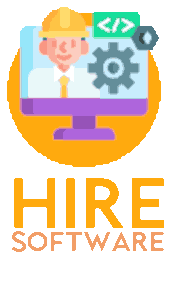Software engineering is a critical role in the tech industry, and hiring the right software engineer is essential for any company’s success. However, with numerous resumes flooding in for a single job post, it can be challenging to filter through them all effectively.
In this article, we will guide you through the process of filtering software engineer resumes and provide insight into what to look for in prospective candidates.
To ensure hiring the best software engineer for your company, you need to have an efficient resume filtering process in place.
Key Takeaways
- Effectively filtering software engineer resumes is critical to hiring the best software engineer for your company.
- An efficient resume filtering process is necessary to streamline your recruitment process.
- Understanding the job requirements and technical skills is essential to filter resumes effectively.
Understanding the Job Requirements
Before starting the resume-filtering process, it’s essential to understand the specific requirements of the software engineer job. A job description details the necessary skills and experience required for the position.
Software engineer job descriptions typically include the following key components:
| Job Title | Software Engineer |
|---|---|
| Job Summary | Write, modify, and debug software for web and mobile applications. |
| Responsibilities |
|
| Skills and Qualifications |
|
It’s imperative to look for relevant technical skills in the software engineer resumes. Key skills include coding languages, software development tools, problem-solving abilities, and relevant experience in software engineering and development. Make sure you have an understanding of the technical expertise required for the job.
Creating a Clear Resume Screening Process
Before diving into the resume screening process, it’s important to establish a clear and efficient system for filtering resumes. By creating a standardized screening process, you’ll be able to streamline the hiring process and identify the most promising candidates quickly.
One effective strategy is to use resume scoring criteria. This involves assigning a point value to different aspects of a candidate’s resume, such as education, experience, technical skills, and projects. By creating a rubric that outlines the criteria and point values, you can objectively score each resume and compare candidates based on their total scores.
Another helpful tool is an applicant tracking system. This software can automate many of the resume screening tasks, such as parsing resumes, searching for keywords, and tracking candidate progress. This can save time and reduce the risk of overlooking qualified candidates.
Regardless of the methods you choose, it’s important to establish a clear process that all hiring team members understand and follow. This can ensure consistency in the resume screening process and help you identify the best software engineer candidates for your organization.
Reviewing Relevant Education and Experience
One of the most crucial steps in filtering software engineer resumes is reviewing the education and experience sections. While experience matters a lot, so does the relevance of the degree and certification.
It’s essential to look for specific degrees such as software engineering, computer science, or related fields. Also, keep an eye out for certifications like Microsoft Certified Solutions Developer (MCSD), Oracle Certified Professional (OCP), or AWS Certified Developer Associate.
In addition to looking for relevant degrees and certifications, practical experience is equally significant. Pay attention to the number of years of experience and the specific programming languages and technologies they have worked on. This will provide insight into their level of knowledge and expertise, and will help you evaluate their potential fit for the role.
Assessing Technical Skills and Knowledge
When filtering software engineer resumes, assessing candidates’ technical skills and knowledge is crucial. The following are some key areas to focus on:
- Coding Languages: Evaluate candidates’ proficiency in the programming languages required for the job. Look for experience with popular languages like Java, Python, C++, and JavaScript.
- Software Development Tools: Check if they have familiarity with commonly used tools and technologies like Git, JIRA, and Jenkins.
- Problem-Solving: Ensure that the candidates have strong problem-solving skills and can approach complex technical problems effectively.
It’s also important to verify their technical knowledge in areas that are relevant to the job. For example, for a front-end developer position, see if they have experience with popular front-end frameworks like React or Vue.js. For a back-end developer role, assess their knowledge of databases and server-side languages.
The Value of Personal Projects
Personal projects can also be a valuable indicator of technical skills. Check if the candidate has built any side projects or contributed to open-source projects. These can provide insight into their coding abilities and creativity.
Analyzing Projects and Contributions

One of the most valuable aspects of a software engineer’s resume is their portfolio of projects and contributions. Analyzing these can provide insight into a candidate’s skills, experience, and potential for growth within your organization.
When reviewing a candidate’s projects, consider the level of complexity and innovation demonstrated. Look for evidence of problem-solving skills, as well as the ability to work collaboratively and communicate effectively. It’s also important to assess the impact of the projects on the organization or community.
Open-source contributions can also provide valuable information about a candidate’s skills and experience. Look for evidence of collaboration with other developers, as well as the ability to work within existing codebases and contribute to larger projects.
Overall, analyzing a candidate’s portfolio of projects and contributions can provide valuable insights into their potential as a software engineer, making it a critical step in the hiring process.
Verifying Communication and Collaboration Skills
Effective communication and collaboration skills are essential for any software engineering team. While technical expertise is crucial, without strong interpersonal abilities, the team’s productivity and development process may suffer. Therefore, it is essential to assess the communication and collaboration skills of software engineering candidates.
| Communication | Collaboration |
|---|---|
| Clear verbal and written communication | Experience working in a team environment |
| Active listening and feedback skills | Experience with agile development methodologies |
| Ability to explain complex technical information to non-technical stakeholders | Conflict resolution skills |
During the hiring process, it’s important to ask behavioral interview questions that evaluate the candidate’s communication and collaboration skills. For example, you could ask about a time they had to resolve a conflict with a team member, or how they would handle a difficult conversation with a stakeholder.
Additionally, reviewing the candidate’s past experience with team projects, open-source contributions, and extracurricular activities can provide valuable insights into their communication and collaboration abilities. Candidates who have experience with agile development methodologies, remote teams, or cross-functional projects may be particularly adept at working collaboratively.
Assessing Problem-Solving Abilities
Problem-solving is a crucial aspect of software engineering, and assessing a candidate’s problem-solving abilities is vital in the resume filtering process. Look for evidence of analytical thinking, logical reasoning, troubleshooting, and innovative problem-solving approaches.
One way to evaluate problem-solving skills is to review the candidate’s past experiences. Look for examples of how they tackled complex problems and the steps they took to arrive at a solution. Also, consider their performance in coding challenges or hackathons, as these can provide insights into their problem-solving abilities under pressure.
During the interview process, ask the candidate about specific problems they’ve faced and how they worked to solve them. Use scenario-based questions to assess their approach to problem-solving, and observe how they reason through a problem and communicate their thought process.
Conducting Effective Interviews
After reviewing resumes, the next step in the hiring process is conducting interviews. Effective interviews help you to evaluate candidates’ ability to communicate, solve problems, and work in a team. Here are some tips to conduct successful interviews:
- Prepare a list of questions: A prepared list of questions allows you to evaluate candidates consistently and fairly. Consider asking questions about their technical skills, experience, problem-solving approach, and communication abilities. Also, encourage them to share their approach to working on a team, handling stress, and communicating concerns.
- Conduct technical interviews: Technical interviews allow you to evaluate a candidate’s specific technical skills. Consider asking questions about their coding experience, software development tools, and problem-solving approach. Use code challenges, whiteboarding exercises, and pairing programming sessions to evaluate their technical skills accurately.
- Conduct behavioral interviews: Behavioral interviews help you to evaluate candidates’ interpersonal skills, communication abilities, and problem-solving approaches. Ask open-ended questions about how they have handled stressful situations, resolved conflicts, and collaborated with team members. Encourage them to share specific examples of their successes and challenges.
- Provide a positive candidate experience: Providing a positive candidate experience during interviews can help you to attract and retain top talent. Consider providing a tour of your workplace and introducing them to team members. Be transparent about the interview process and the company culture. Also, provide them with feedback after the interview.
By following these tips, you can conduct successful interviews and evaluate candidates effectively.
Conclusions

Filtering software engineer resumes can be a daunting task, but a clear screening process and a thorough evaluation of candidates’ skills and experience can lead to successful hires.
Remember to take the time to understand the job requirements, review education and experience, assess technical skills and knowledge, analyze projects and contributions, verify communication and collaboration skills, and assess problem-solving abilities.
Effective interviews are also crucial in evaluating software engineer candidates. Conduct technical and behavioral interviews and use them to assess the candidate’s fit with the company culture, skills, and working style. By following these strategies and tips, you can identify top talent and build a team that will drive your business forward.
FAQ

Q: How important is it to effectively filter software engineer resumes?
A: Filtering software engineer resumes is crucial for finding the most qualified candidates for the job. It saves time and resources by narrowing down the applicant pool to those who meet the job requirements.
Q: What should I consider when understanding the job requirements?
A: It is essential to carefully review the software engineer job description to understand the specific skills and qualifications required. This includes technical skills, experience, and any other specific requirements outlined in the job posting.
Q: How can I create a clear resume screening process?
A: To establish an efficient resume screening process, consider implementing a standardized screening system. This can involve using resume scoring criteria, creating a checklist, and utilizing applicant tracking systems to streamline the process.
Q: Why is it important to review education and experience in software engineer resumes?
A: Reviewing education and experience helps determine the relevance of candidates’ qualifications. It allows you to assess if they possess the necessary degrees, certifications, and experience to excel in the role.
Q: What should I assess regarding technical skills and knowledge?
A: When evaluating technical skills, consider coding languages, software development tools, problem-solving abilities, and other relevant technical expertise. Assessing these skills helps determine if candidates have the necessary knowledge to perform the job effectively.
Q: Why is analyzing projects and contributions important?
A: Analyzing projects and contributions provides insights into candidates’ abilities and accomplishments. It helps evaluate the complexity, quality, and impact of their work, as well as the value of any open-source contributions they have made.
Q: What should I look for in terms of communication and collaboration skills?
A: Verifying communication and collaboration skills is crucial in the software development environment. Pay attention to candidates’ ability to work well in teams, their interpersonal skills, and their effectiveness in communicating complex ideas.
Q: How can I assess problem-solving abilities?
A: When assessing problem-solving abilities, consider candidates’ analytical thinking, logical reasoning, troubleshooting skills, and their ability to approach and solve problems with innovative and creative solutions.
Q: What tips can you provide for conducting effective interviews?
A: When conducting interviews, make sure to include different interview types, such as technical and behavioral interviews. This allows you to assess candidates’ technical skills, problem-solving abilities, and how they would fit within the team.







